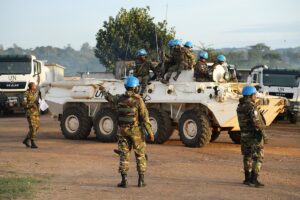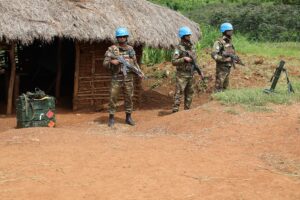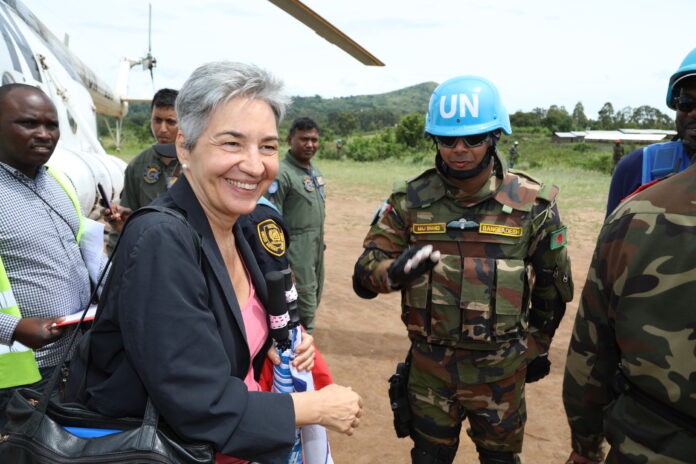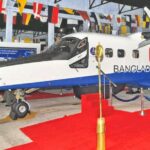1988 Bangladesh has contributed over 188,000 peacekeepers to UN missions securing the top rank in global peacekeeping contributions five times. Participating in a UN peacekeeping mission in the Russia-Ukraine conflict would be a matter of pride for Bangladesh as it was during the war-torn Kuwait mission. Below is a detailed account of Bangladesh’s peacekeeping history and its contributions to UN peacekeeping operations.
Early History and Beginnings (1988)
First Mission: Bangladesh began its UN peacekeeping journey in 1988 participating in the United Nations Iran-Iraq Military Observer Group (UNIIMOG) and the United Nations Transition Assistance Group (UNTAG) in Namibia.The Bangladesh Army sent 15 military observers marking the first instance of peacekeeping deployment from South Asia.
Context: Bangladesh joined the UN in 1974. In his historic 1974 UN General Assembly speech in Bangla, Bangabandhu Sheikh Mujibur Rahman expressed Bangladesh’s commitment to global peace. This vision paved the way for Bangladesh’s participation in peacekeeping missions starting in 1988. Kuwait Mission (UNIKOM)
Kuwait Mission (UNIKOM)
Gulf War (1991): During the Gulf War Bangladesh deployed an engineering battalion (approximately 2,193 personnel) to the United Nations Iraq-Kuwait Observation Mission (UNIKOM) in Kuwait and Saudi Arabia. Bangladeshi peacekeepers played a crucial role in rebuilding infrastructure and maintaining peace in war-torn areas.
Contribution: This mission earned global recognition for the professionalism and efficiency of Bangladeshi peacekeepers.
Global Contributions (1988. Present)
Mission Scope: Since 1988. Bangladesh has participated in 56 UN peacekeeping missions across approximately 40 countries, including Namibia, Cambodia, Somalia Rwanda Mozambique former Yugoslavia Liberia Haiti East Timor Congo Sierra Leone Kosovo Georgia Ivory Coast Ethiopia and others.
Peacekeeper Numbers: As of 2021 176,669 Bangladeshi peacekeepers have served in UN missions including 156,353 from the armed forces and 20,316 from the police with 2,184 being women peacekeepers.
Top Ranking: Bangladesh has topped the list of peacekeeping troop-contributing countries multiple times including in 2020 with 6,731 peacekeepers. As of 2025, it ranks second globally.
Notable Missions and Achievements
Rwanda (1994): During the Rwandan genocide a Bangladeshi brigade group remained deployed when Belgian and other Afro-European battalions withdrew. Their bravery reduced the genocide’s impact earning global acclaim.
Somalia: Bangladeshi peacekeepers provided security during the withdrawal of American forces in Somalia, with their professionalism and courage widely praised.
Sierra Leone: Bangladesh’s contributions were so significant that Sierra Leone considered adopting Bangla as a second language.
Sacrifices and Recognition
Martyred Peacekeepers: As of 2021, 159 Bangladeshi peacekeepers have been martyred during UN missions, including 84 from the army one from the navy and three from the air force.
International Recognition: Bangladeshi peacekeepers have consistently been praised by the UN and the international community for their professionalism and bravery. In 2004 the BBC described them as the backbone of UN peacekeeping forces.
Women Peacekeepers
Participation: In 2010, 81 women police officers joined a Formed Police Unit (FPU) in Congo marking a milestone. To date 710 women police officers have completed UN missions.
Role of Women: Bangladeshi women peacekeepers play a vital role in ensuring the safety of women and children and providing humanitarian assistance in conflict zones.
Potential Mission in the Russia-Ukraine Conflict
Current Context: A UN peacekeeping mission has not yet been formally established for the Russia-Ukraine conflict. However given Bangladesh’s extensive peacekeeping experience, participation in such a mission would be a matter of national pride.
Challenges: The complex geopolitical situation in the Russia-Ukraine conflict has delayed the formation and deployment of a peacekeeping mission. Nevertheless Bangladesh has 15 contingents registered in the United Nations Peacekeeping Capability Readiness System (UNPCRS), ready for rapid deployment.
Characteristics of Bangladeshi Peacekeepers
Professionalism: Bangladeshi peacekeepers are lauded for their neutrality professionalism and ability to build humanitarian relationships with local populations.
Infrastructure Development: Engineering battalions have been instrumental in rebuilding roads bridges and infrastructure in war-torn regions.
Ethics: Bangladeshi peacekeepers maintain neutrality among conflicting parties contributing significantly to peacebuilding.
Challenges and Criticisms
Lack of Leadership Roles: Despite leading in troop contributions Bangladesh has relatively few representatives in senior UN peacekeeping leadership roles attributed to weak lobbying and limited influence in policy-making.
Human Rights Allegations: In 2022 allegations of human rights violations against the Rapid Action Battalion (RAB) led to proposals to exclude RAB from UN peacekeeping missions.
Conclusion:
Since 1988 Bangladesh’s peacekeeping forces have made remarkable contributions to global peace humanitarian aid and infrastructure rebuilding in conflict zones.Their leadership in UN missions has earned worldwide acclaim. Participation in a potential Russia-Ukraine peacekeeping mission could mark another proud chapter for Bangladesh provided the UN establishes such a mission. However increasing representation in leadership roles and addressing human rights concerns will be critical for the future of Bangladesh’s peacekeeping efforts.
















